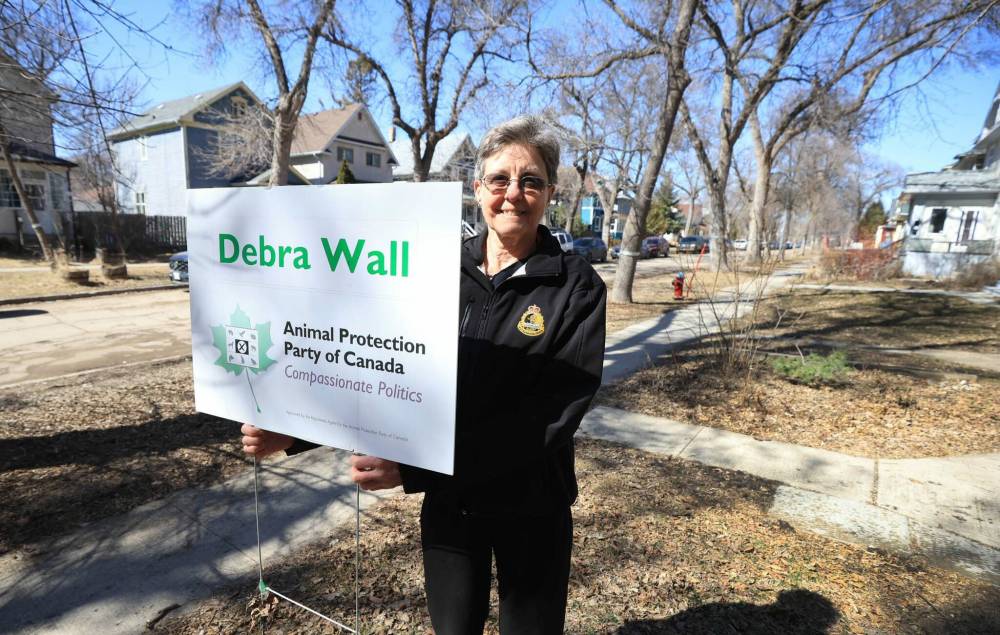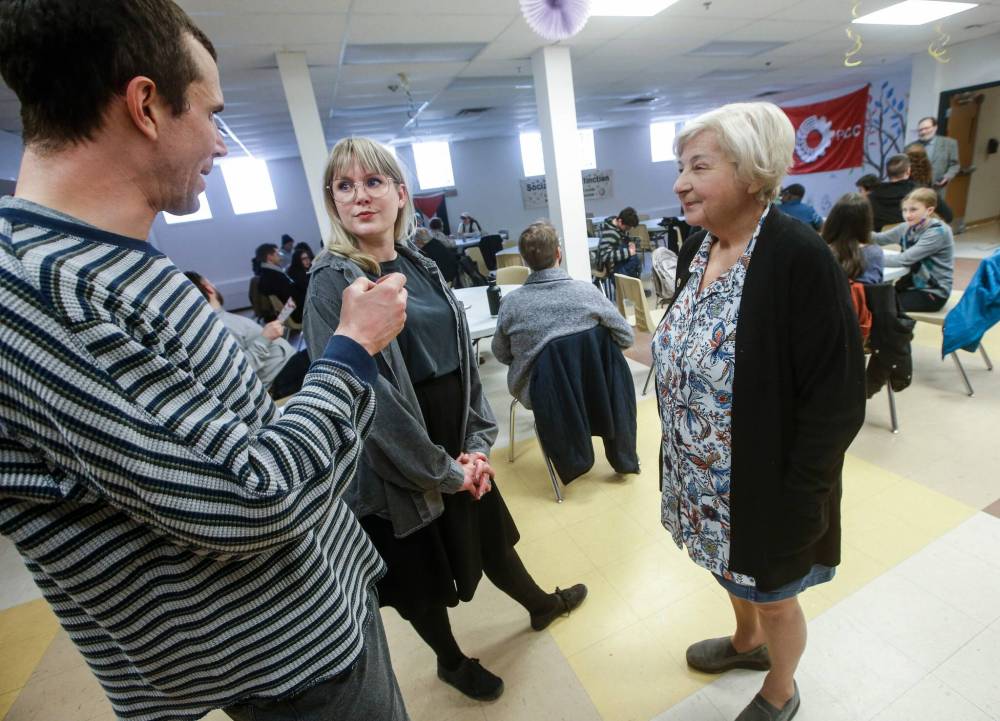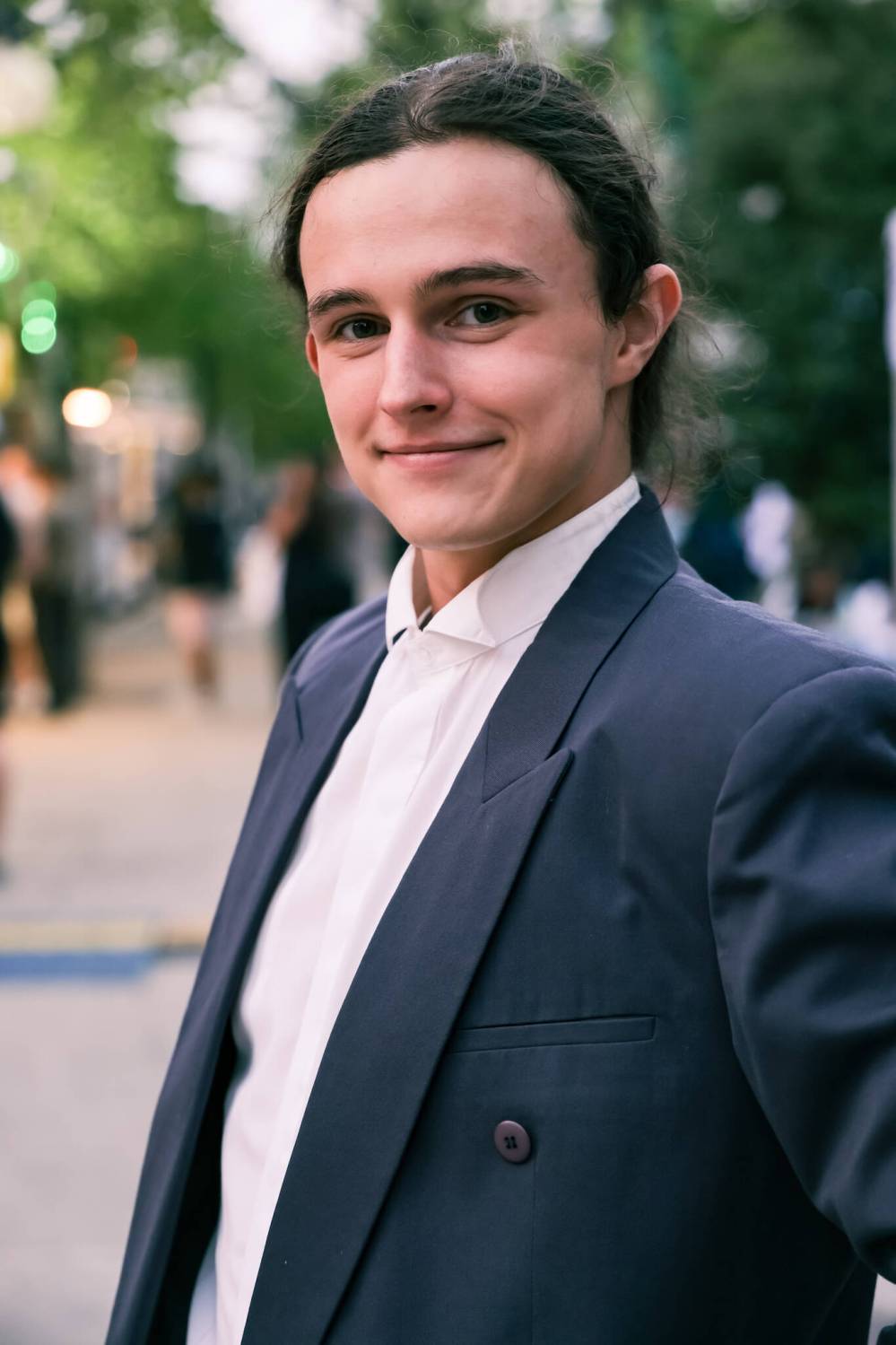Fringe benefits
Lesser-known parties, independent candidates put stamp on election campaign
Advertisement
Read this article for free:
or
Already have an account? Log in here »
To continue reading, please subscribe:
Monthly Digital Subscription
$1 per week for 24 weeks*
- Enjoy unlimited reading on winnipegfreepress.com
- Read the E-Edition, our digital replica newspaper
- Access News Break, our award-winning app
- Play interactive puzzles
*Billed as $4.00 plus GST every four weeks. After 24 weeks, price increases to the regular rate of $19.95 plus GST every four weeks. Offer available to new and qualified returning subscribers only. Cancel any time.
Monthly Digital Subscription
$4.99/week*
- Enjoy unlimited reading on winnipegfreepress.com
- Read the E-Edition, our digital replica newspaper
- Access News Break, our award-winning app
- Play interactive puzzles
*Billed as $19.95 plus GST every four weeks. Cancel any time.
To continue reading, please subscribe:
Add Free Press access to your Brandon Sun subscription for only an additional
$1 for the first 4 weeks*
*Your next subscription payment will increase by $1.00 and you will be charged $16.99 plus GST for four weeks. After four weeks, your payment will increase to $23.99 plus GST every four weeks.
Read unlimited articles for free today:
or
Already have an account? Log in here »
Hey there, time traveller!
This article was published 21/04/2025 (281 days ago), so information in it may no longer be current.
Debra Wall holds a campaign sign and waves at passing drivers as she stands on a corner on Portage Avenue — alone.
Wall is running for the Animal Protection Party of Canada in Winnipeg Centre.
She doesn’t have a vast amount of campaign resources or volunteers to help deliver her message, whether it’s standing on a corner or knocking on doors in the riding.

“I’m not running against anybody. I’m running for the animals,” she said.
The party, formerly known as the Animal Alliance Environment Voters Party of Canada, is fielding just seven candidates across the country and the 66-year-old Wall, a retired veterinary assistant, is the only candidate in Manitoba.
Wall isn’t the only candidate vying for in Manitoba’s 14 ridings who is fighting what many would call a quixotic battle for the hearts and minds of voters.
There are independents as well as two candidates who represent the Communist party and one with the United Party of Canada.
These candidates are never invited to national debates, have few lawn signs and little hope of being elected, but they say getting elected isn’t the point.
“I want to be able to put (animal) issues on to the other parties’ radar and to also encourage people to ask candidates when they come knocking for their votes,” Wall said
University of Manitoba political studies professor Christopher Adams said people who run as independents or for a fringe party do it for two reasons.
“Some people just like putting their views forward,” he said.
“The second thing is issue politics. These are more serious candidates, but they still don’t have much of a chance. They want their issues to have a higher profile.”
“I will get my name on the ballot… that was the goal. Then, when that happened, it opened up these opportunities for advocacy that I never had.”– Debra Wall
Adams said elections offer them the chance to get their messages out to people who don’t attend one of their rallies, marches or events between elections.
“They could end up in the media — like with this story,” he said. “Think of elections as a megaphone. Where else do they get a chance to broadcast their message? Elections are just one form of a megaphone for them.”
In terms of the Green party and the People’s Party of Canada, he doesn’t consider them fringe parties.
He noted the Green party has elected MPs and provincial representatives and the PPC has a leader — Maxime Bernier — who came close to being elected leader of the Conservative Party of Canada in May 2017 before striking out on his own.
“The thing that separates the PPC from the Green party is they have no presence in the House of Commons or provincial assemblies.”
Wall’s party, which was created in 2005 following the amalgamation of the Animal Alliance of Canada and the Environmental Voters, has run in six federal elections and one byelection. In the 2021 election, with 10 candidates, the party garnered 2,546 votes across the country.
She said for years she didn’t think she had enough time to run, but finally tossed her hat in the ring to run in Winnipeg Centre in 2021.
“I will get my name on the ballot — that was the goal,” Wall said. “Then, when that happened, it opened up these opportunities for advocacy that I never had. I thought that was very positive and it seems this time around I’m getting even more interest.”
Wall admits it was a blow when she was shut out of the debate being held by the Winnipeg Humane Society.
“They justified it by saying they’re only inviting the major parties… but I must say, I’m very disappointed with the Winnipeg Humane Society. They are having a debate about animal welfare and I was not invited.”
The Communist party has a long history in Manitoba, with representatives elected to the Manitoba legislature, Winnipeg city council, and the Winnipeg School Division, but no one here has ever been elected as a member of Parliament.
Sarah Borbridge in Winnipeg North and Cam Scott in Winnipeg South Centre are the latest to take on that challenge. They are both trying to unseat Liberals.
“I’ve helped with a lot of campaigns with the Communist party, but this is my first time with my name on it,” the 36-year-old Borbridge said while taking a break from her job as a community social worker.

“We got our names in (on the nomination form) on the second day the (Election Canada) offices were open.”
Borbridge said Communist party candidates have been on the ballot in the two ridings throughout the years.
“I’ve had no negative reactions. People are happy to see us and they like our message. We stand for peace and disarmament.”
Borbridge became a member of the party after realizing society wasn’t making any progress.
“I think people know this is the profit motive in society… socialism really is just the next step to really solving these social issues.
“There is a fight which has to be made to bring the living standards up.”
As for whether the two candidates have a chance of winning against the three main parties, Borbridge said: “We use this time to amplify our message. We say it is not impossible if someone is fighting for it.”
Tait Palsson is the lone independent running in Winnipeg South Centre.
It wasn’t that way the first time the 21-year-old ran, which was during the 2023 byelection. Liberal Ben Carr won the seat against 47 competitors, including 42 independents. It was part of a co-ordinated push by the Longest Ballot Committee to protest against Canada’s first-past-the-post electoral system.
While Palsson was running as an independent, he wasn’t part of that protest.

“I’m excited to see what a single column ballot will be like for me this time,” he said.
Palsson said he has autism and dyslexia and he believes the school system failed him by not giving him the accommodations he needed to graduate from high school with his peers.
“I hope the votes I get are for the merit of my ideas,” he said.
Palsson has plenty of ideas, including wanting to take “bold action” on affordability, housing, the environment and labour laws; pushing for electoral reform to bring in proportional representation; having greater accountability in Parliament to prevent politicians’ evading questions and exhibiting poor behaviour; and advocating for disability rights and inclusion of neuro-diversity in politics and the workplace.
“I also want to have direct propositions,” he said. “There are issues which Canadians should have a voice on directly. I want a carbon election, a health care election. Right now, Canadians have to choose from a basket of imperfect policies from one party and a basket of imperfect policies from another party.
“Propositions should be just as binding as the MPs being elected.”
Chris Riddell is running in Selkirk-Interlake-Eastman for the United Party of Canada, which was founded last year by leader Grant Abraham. The party has 16 candidates running across the country.
Riddell, whose campaign literature says he was born and raised on a farm near Warren in the Interlake, and is a former Winnipeg police officer, who for several years sat on the board of the Winnipeg Police Association, was president of the Manitoba Police Association, and Manitoba vice-president for the Canadian Police Association, agreed to be interviewed by the Free Press, but could not be reached at the scheduled interview time.
The party vows to pull the country out of the United Nations, the World Health Organization and World Economic Forum; it wants to end trade agreements in which Canada must comply with foreign environmental, taxation or regulatory standards; and it wants to stop federal transfer payments to provinces such as Manitoba.
It promises to rebuild the military with a “massive investment,” introduce a ban on abortions except where the mother’s life is at immediate risk, and eliminate Medical Assistance in Dying.
kevin.rollason@freepress.mb.ca

Kevin Rollason is a general assignment reporter at the Free Press. He graduated from Western University with a Masters of Journalism in 1985 and worked at the Winnipeg Sun until 1988, when he joined the Free Press. He has served as the Free Press’s city hall and law courts reporter and has won several awards, including a National Newspaper Award. Read more about Kevin.
Every piece of reporting Kevin produces is reviewed by an editing team before it is posted online or published in print — part of the Free Press‘s tradition, since 1872, of producing reliable independent journalism. Read more about Free Press’s history and mandate, and learn how our newsroom operates.
Our newsroom depends on a growing audience of readers to power our journalism. If you are not a paid reader, please consider becoming a subscriber.
Our newsroom depends on its audience of readers to power our journalism. Thank you for your support.








